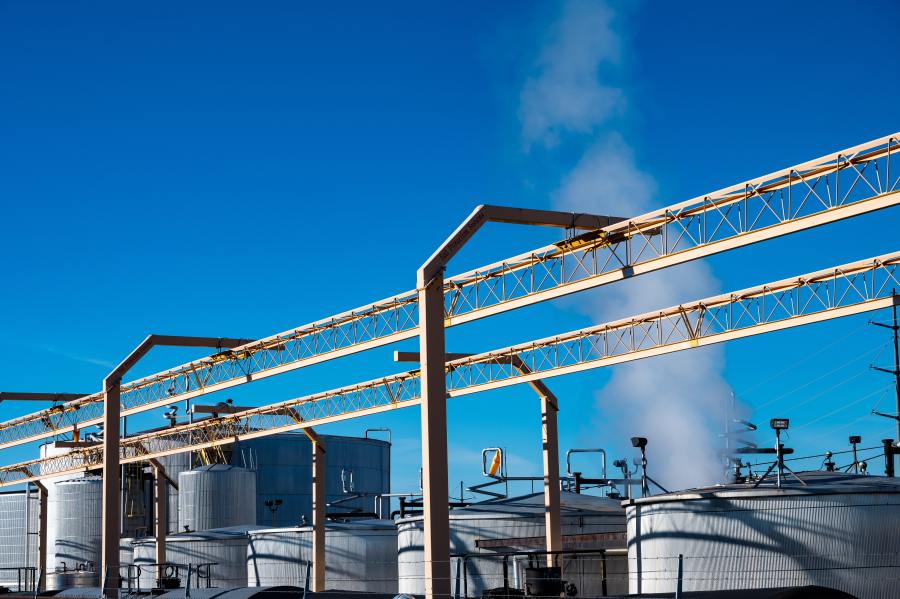In December 2018, Lander & Rogers published an article on the Dalby Bio-Refinery Ltd v Allianz Australia Limited [2018] FCA 1806 (Federal Court Judgment) regarding the successful defence of a claim against insurers for alleged wrongful declinature based on Perils Exclusion 6(c) of an ISR Mark IV Policy.
The appeal of the Federal Court Judgment by the Insured, Dalby Bio-Refinery Ltd (Dalby), was heard on 14 May 2019. Judgment was delivered on 24 May 2019, with the Federal Court of Appeal dismissing Dalby's appeal with costs [*Dalby Bio-Refinery Ltd v Allianz Australia Limited *[2019] FCAFC 85] (Federal Court of Appeal Judgment).
This article details the Federal Court of Appeal Judgment and implications for insurers.
Background
Dalby Bio-Refinery Ltd (Dalby) was insured under an ISR Mark IV Policy issued by Allianz Australia Insurance Limited, Ace Insurance Limited (now Chubb Insurance) and Zurich Australian Insurance Limited (together, Insurers) for the period 30 June 2015 to 30 June 2016 (Policy).
On 2 March 2016, an employee of Dalby attended a storage facility in Dalby, Queensland (Facility), and observed the smouldering of stockpiles of dry distiller's grain and solubles (DDGS) (Incident). As a result of the Incident, a large quantity of DDGS stored in the Facility were declared a write-off and discarded.
Dalby sought indemnity under the Policy for its losses arising from the Incident (Claim).
Position on indemnity and proceedings
Insurers declined to cover the Claim based on Perils Exclusion 6(c)(i) and/or 6(c)(ii) of the Policy, which states:
"Perils Exclusions
The Insurer(s) shall not be liable … in respect of:
...
6. physical loss, destruction or damage occasioned by or happening through:
...
(c) (i) spontaneous combustion
(ii) spontaneous fermentation or heating or any process involving the direct application of heat
Provided that Perils Exclusions 6(c)(i) and 6(c)(ii) shall be limited to the item or items immediately affected and shall not extend to other property damaged as a result of such spontaneous combustion, fermentation or heating or process involving the direct application of heat".
(Perils Exclusion)
Dalby did not accept that the Perils Exclusion applied to exclude cover for the Claim and, on 30 October 2017, commenced proceedings against Insurers, seeking indemnity for the Claim.
Expert opinion
The question of the cause of the damage was referred to a Court appointed referee, Dr Rodney Weber, who prepared two reports (Reports), which the parties adopted. Dr Weber concluded that self-heating was the most probable cause of the damage, although he could not be certain of the precise mechanism that brought about the self-heating.
Findings of Primary Judge
The Primary Judge found in favour of Insurers at first instance. A summary of his Honour's reasons is outlined here.
The issue on appeal was the operation of the Perils Exclusion, which encompassed four main points:
1. the Primary Judge failed to consider the whole of the Policy in coming to his preferred construction of the Perils Exclusion;
2. should the word “heating” in Perils Exclusion 6(c)(ii) of the Policy, properly construed, be understood as qualified by “spontaneous”;
3. should the reference to “self-heating” by Dr Weber be understood as “spontaneous heating” for the purposes of Perils Exclusion 6(c)(ii) of the Policy; and
4. does Perils Exclusion 6(c)(ii) of the Policy, properly construed, operate where it is established that the cause of the damage was self-heating, without the need to prove the cause of the self-heating?
Appeal Judgment
Considering the Policy as a whole
The Federal Court of Appeal considered the Policy had clearly been negotiated by important changes to the operation of the cover, the property exclusions, and the perils exclusions. In their opinion, none of the terms of the insuring clause, the level of the deductibles, or the property insured (subject to property exclusions1), or the basis of settlement clause, assisted in ascribing meaning to the word “heating” in Perils Exclusion 6(c)(ii).
Accordingly, the Primary Judge displayed no error in not lengthening his reasons for judgment by referring to parts of the Policy of no assistance.
Construction of the Perils Exclusion
The proper meaning to be given to Perils Exclusion 6(c)(ii) is a businesslike construction, by reference to what a reasonable businessperson would have understood the words in their commercial context to mean. Here, the Policy was carefully drawn, and proper regard should be had to the language used without dwelling on choices of structure or syntax that may be open to different interpretations.
In the context that Dalby stored large quantities of grain, the Perils Exclusion can be seen to be removing certain matters from the risks that Insurers were willing to accept and that were to be placed at the risk of Dalby.
For the Perils Exclusion:
1. 6(c)(i) “spontaneous combustion”, is a phrase encompassing actual “combustion”. Its spontaneous character may manifest itself in a sudden event of fire or ignition, but "spontaneous" does not mean sudden. Rather, as the dictionaries show, it means "self-generated or from within".
2. The first part of 6(c)(ii) "Spontaneous Fermentation" is again a self-generated process.
3. The second part of 6(c)(ii), “heating”, is explicable in the context where Perils Exclusion 6(c)(i),“spontaneous combustion” is only the endpoint of and may not capture the self-generated heating prior to that endpoint , which self-generated heating may (as here) damage property such as grain, hay and the like; and
4. the balance of 6(c)(ii) involves the external application of heat, such that, if "heating" was not qualified by understanding the meaning of "spontaneous" to be "self-generation", there would be little need for the balance of (ii).
Also the structure of the proviso — “such spontaneous combustion, fermentation or heating” — tends to confirm that "spontaneous" in the sense of self-generated heating was intended to qualify heating.
Accordingly, the Federal Court of Appeal held that “heating” is to be qualified by “spontaneous” to read “spontaneous heating” and the Perils Exclusion covers self-generated combustion, fermentation, and heating, as well as the external application of heat.
Meaning of "spontaneous heating"
The Federal Court of Appeal agreed with the Primary Judge that Dr Weber's Report and the ordinary and proper meaning of the phrase “spontaneous heating”, should be given objectively, as that which would commend itself to businesspeople. This led to the conclusion that "self-heating", caused by whichever mechanism or combination of mechanisms, was "spontaneous heating".
It was also confirmed that the definition of "spontaneous" is broader than the notion of an event of some suddenness,. For example, there is no reason why “spontaneous fermentation” would be understood as in any way sudden as fermentation is a gradual process.
Proximate Cause
The Perils Exclusion deals with damage occasioned by or happening through (a process of) spontaneous heating. Spontaneous heating, that is heating generated internally (as opposed to externally), involves environmental factors providing oxygen, whether through air or water, for a process of oxidation and heating. The circumstances that provided the suitable conditions for the self-generated heating through oxidation explain why the process of spontaneous heating occurred. An inability to be precise or definite about why the process occurred is not doubt that the process occurred.
The circumstances and control of the environment which may lead to spontaneous heating or combustion or fermentation are likely to be, in significant part, in the control of Dalby. As such, the enquiry under the Perils Exclusion ceases at the answer to the question whether the damage was occasioned or happened through (the process of) spontaneous heating. It does not go further to seeking to explain why the (process of) spontaneous heating came about.
Key implications for the insurance industry
The Federal Court of Appeal has confirmed the following key matters regarding the Perils Exclusion:
1. the word "heating" is to be qualified by “spontaneous” to read “spontaneous heating”;
2. the proper meaning to be given to Perils Exclusion 6(c)(ii) is a businesslike construction, by reference to what a reasonable businessperson would have understood the words in their commercial context to mean;
3. the definition of "spontaneous" is broader than the notion of an event of some suddenness, as shown by the dictionary definitions; and
4. in respect of physical loss, destruction or damage occasioned by or happened through self-heating, there is no reason to search for antecedent events to identify the anterior cause(s) of the self-heating.
This is a significant decision not only for Insurers but the commercial property and ISR industry more broadly. It confirms that cover under an ISR Mark IV policy does not extend to physical loss, destruction or damage occasioned by or happening through spontaneous combustion, fermentation or heating. This is a risk that insurers are not willing to accept, as it is a well-known risk that is within the control of insureds dealing with the bulk storage of organic material.
1 In particular, Dalby submitted that changes to property exclusion 16 dealing with machinery breakdown and property exclusion 17 dealing with boiler and pressure vessel explosion assisted in understanding that the word "spontaneous" qualified the word "heating" in Perils Exclusion 6(c)(ii). The Federal Court of Appeal rejected this submission.
All information on this site is of a general nature only and is not intended to be relied upon as, nor to be a substitute for, specific legal professional advice. No responsibility for the loss occasioned to any person acting on or refraining from action as a result of any material published can be accepted.
All information on this site is of a general nature only and is not intended to be relied upon as, nor to be a substitute for, specific legal professional advice. No responsibility for the loss occasioned to any person acting on or refraining from action as a result of any material published can be accepted.
 Client portal
Client portal












